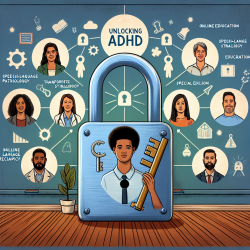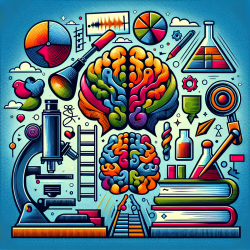As a practitioner in the field of special education, the challenge of supporting children with ADHD can be both demanding and rewarding. The book "ADHD: The Facts" by Dr. Mark Selikowitz provides invaluable insights that can transform how you approach your work with these children. This blog will highlight key outcomes from the research presented in the book and offer actionable steps to improve your practice.
Understanding ADHD: A Multi-Faceted Disorder
ADHD is increasingly recognized not just as a behavioral disorder but as a neurodevelopmental condition with cognitive and linguistic implications. This understanding is crucial for practitioners who need to move beyond traditional behavior management techniques and incorporate strategies that address these underlying deficits.
Key Takeaways from "ADHD: The Facts"
- Comprehensive Understanding: The book offers a thorough overview of ADHD, including its symptoms, neurodevelopmental causes, and clinical assessment methods. This foundational knowledge is essential for effective intervention.
- Associated Disorders: ADHD often co-occurs with other conditions such as anxiety, Tourette's syndrome, and language impairments. Recognizing these can help tailor more effective treatment plans.
- Myth-Busting: The book dispels common myths about ADHD, such as the notion that it is caused by poor parenting. Understanding the scientific basis of ADHD can help in educating parents and teachers.
- Multi-Modal Treatment: Emphasizing a combination of medical, educational, and behavioral interventions, the book advocates for a holistic approach to treatment.
Actionable Steps for Practitioners
Here are some practical ways to implement the insights from "ADHD: The Facts" into your practice:
1. Develop a Comprehensive Knowledge Base
Stay updated with the latest research on ADHD. Understanding its neurodevelopmental aspects can help you design more effective interventions. Consider subscribing to journals or joining professional networks that focus on ADHD and related disorders.
2. Individualized Academic Programs
Many children with ADHD struggle with academic underachievement and language impairments. Collaborate with educators to create individualized academic programs that address these specific challenges. Use the book's insights to advocate for these children in school settings.
3. Multi-Modal Interventions
Incorporate a combination of medical, educational, and behavioral strategies in your treatment plans. Work closely with medical professionals to ensure that children receive comprehensive care. Educate parents and teachers on effective strategies to support children both at home and in school.
4. Educate and Empower
Use the knowledge gained from "ADHD: The Facts" to educate parents, teachers, and other stakeholders. Dispel myths and provide evidence-based information to foster a supportive environment for children with ADHD.
5. Focus on Strengths
While addressing the deficits associated with ADHD, it's equally important to recognize and build on the individual strengths of each child. This positive approach can significantly improve their self-esteem and overall development.
By implementing these strategies, practitioners can make a significant difference in the lives of children with ADHD. For a deeper understanding, consider reading the original research paper, "ADHD: The Facts," by following this link: ADHD: The Facts.










